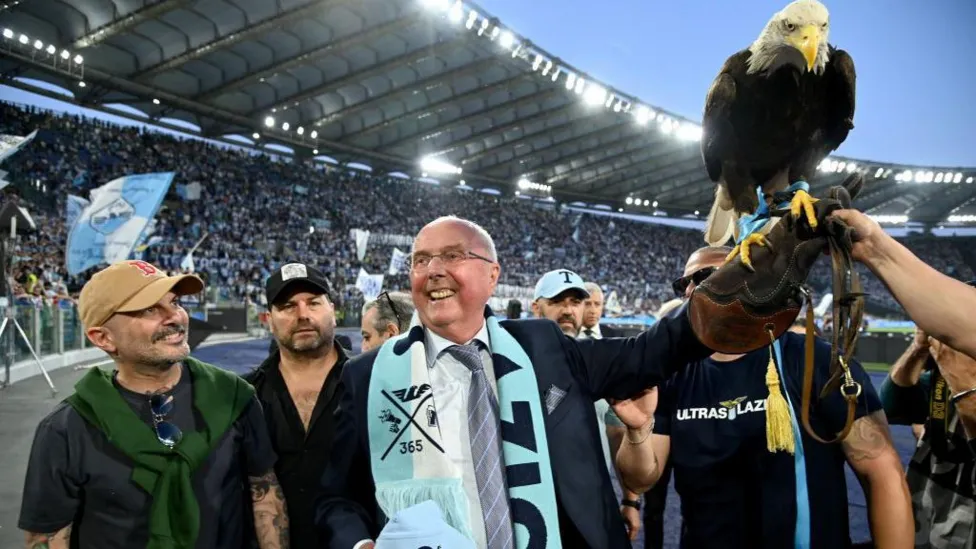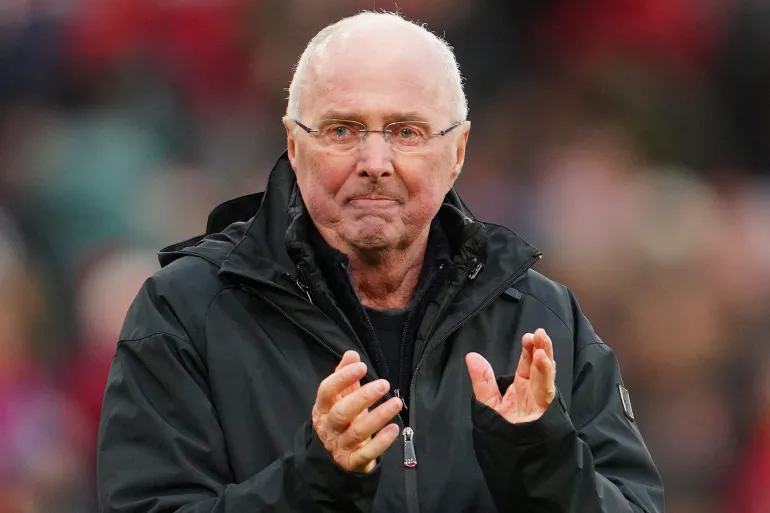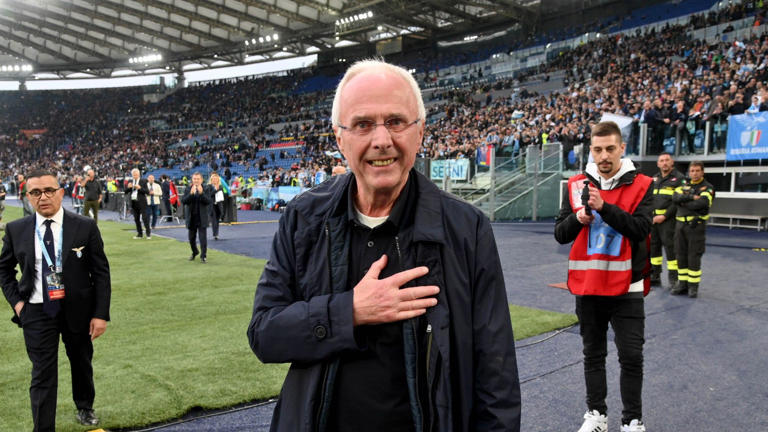Sven-Goran Eriksson, the trailblazing Swedish football manager who became the first non-British coach to lead England’s national team, died peacefully at his home in Bjorkefors, Sweden, on Monday. He was 76 years old.

Eriksson’s children, Lina and Johan, announced their father’s passing in a poignant statement, revealing that he had succumbed to the cancer he had been battling. “Our father Sven-Goran Eriksson fell asleep peacefully in his home at Bjorkefors outside Sunne this morning,” they said, adding that he had fought bravely against his illness.
The announcement comes just weeks after Eriksson publicly disclosed his terminal diagnosis in January, stating he had “at best” a year to live. Despite the grim prognosis, the beloved coach spent his final months reconnecting with the football world that had been his life’s passion.
Eriksson’s managerial career spanned over four decades and multiple continents. He led 12 clubs, including high-profile stints with Manchester City, Leicester City, AS Roma, and Lazio. His trophy cabinet boasted 18 major honors, including the Serie A title with Lazio and the UEFA Cup with IFK Gothenburg.

However, it was his tenure as England manager from 2001 to 2006 that cemented his place in football history. Eriksson guided the Three Lions to three consecutive major tournament quarter-finals – the 2002 and 2006 World Cups, and Euro 2004. His time at the helm was marked by both on-field successes, including a memorable 5-1 victory over Germany in Munich, and off-field controversies that captivated the British tabloids.
Following his England departure, Eriksson embarked on a nomadic career that included managing Mexico, Ivory Coast, and the Philippines national teams, as well as several club sides in China. His final managerial position was a brief 10-game spell with the Philippines in 2018-2019.
In the wake of his cancer diagnosis, Eriksson received an outpouring of support from the football community. He made emotional visits to former clubs, including Lazio and Sampdoria, and even fulfilled a lifelong dream by leading a Liverpool Legends team at Anfield in March.
Tributes poured in from across the football world upon news of Eriksson’s passing. Michael Owen, who played under him for England, described the Swede as “one of the very best” and “a man who will be sadly missed by everyone in the world of football.” The Prince of Wales, president of the Football Association, remembered Eriksson for his “charisma and passion for the game.”

Mark Bullingham, FA chief executive, highlighted Eriksson’s significant contributions to English football, stating, “He gave all England fans such special memories. No one can ever forget the 5-1 victory in Munich against Germany under Sven’s guidance.”
Eriksson’s legacy extends beyond his tactical acumen and trophy haul. He was widely regarded as a gentleman of the sport, known for his calm demeanor and positive outlook. In his final public message, featured in a recently released documentary, Eriksson reflected on his life with characteristic grace: “I had a good life. I think we are all scared of the day when it is finished – when we die. But life is about death as well. You have to learn to accept it for what it is.”
As the football world mourns the loss of one of its most influential figures, Sven-Goran Eriksson’s impact on the beautiful game – from Sweden to England and beyond – will be remembered for generations to come.



